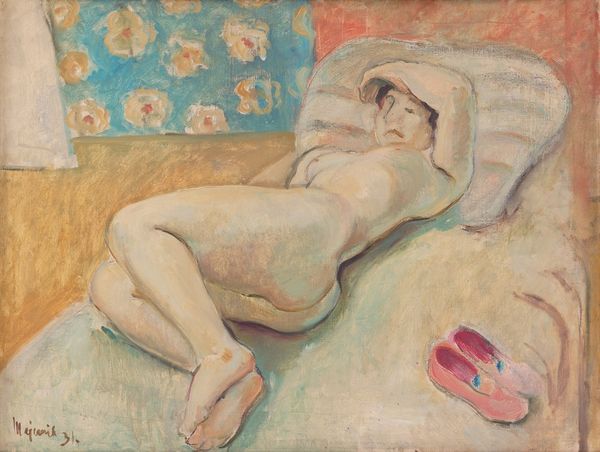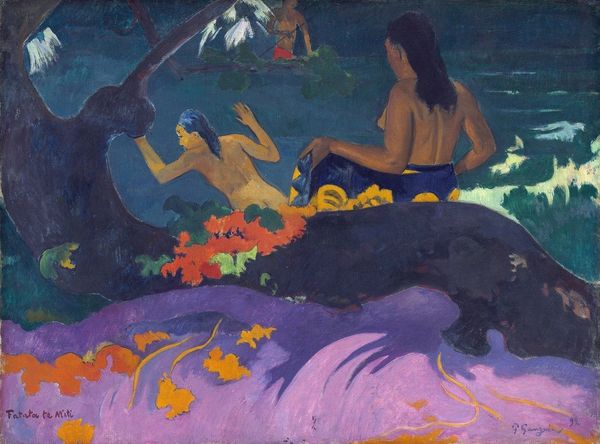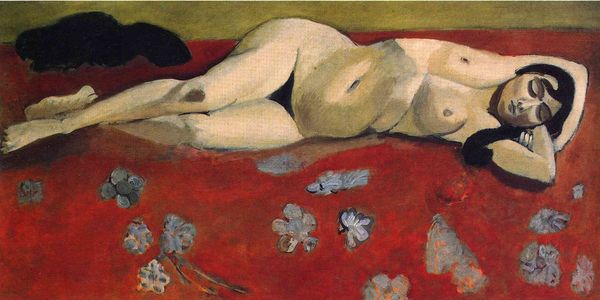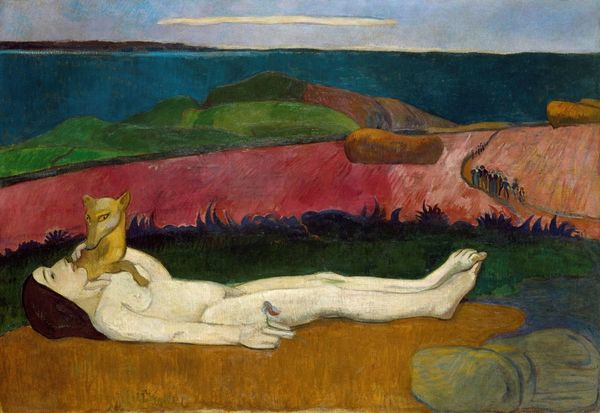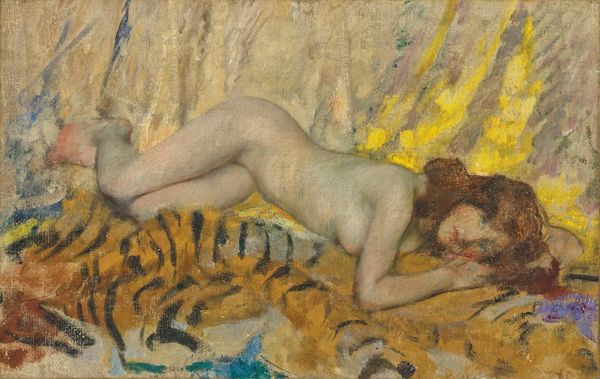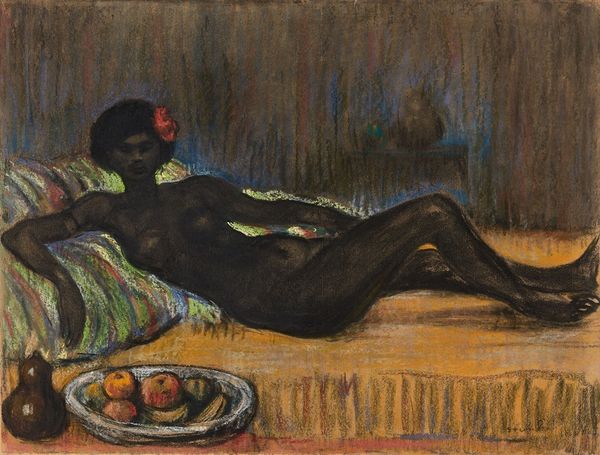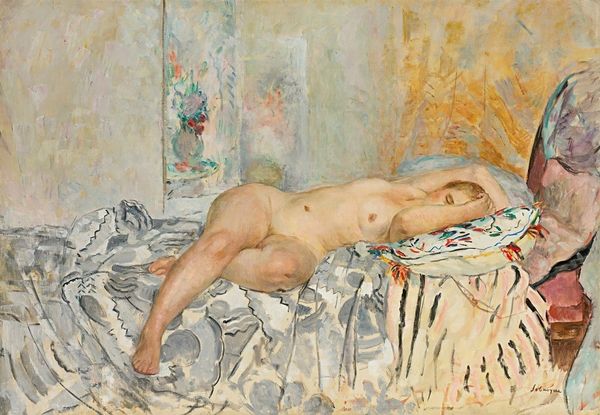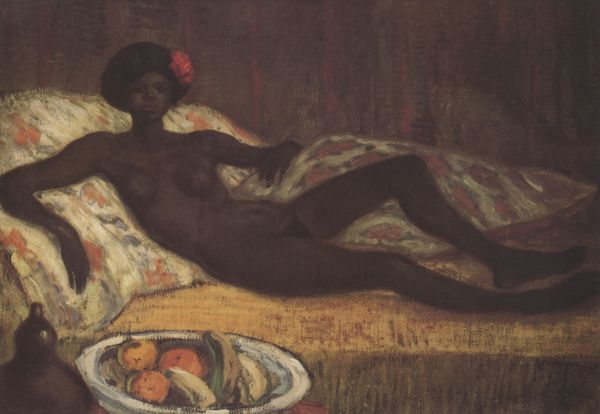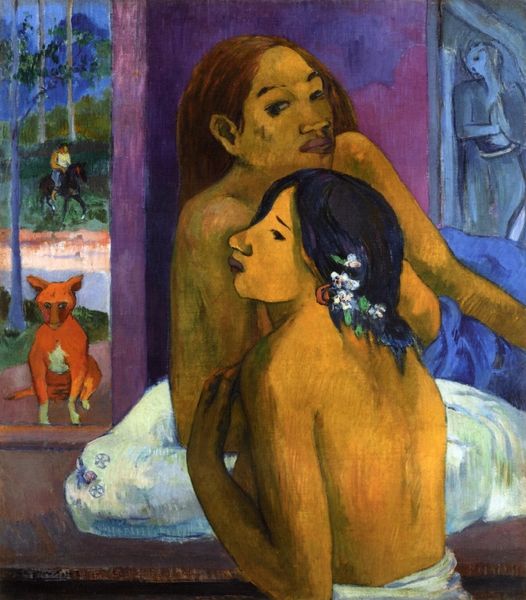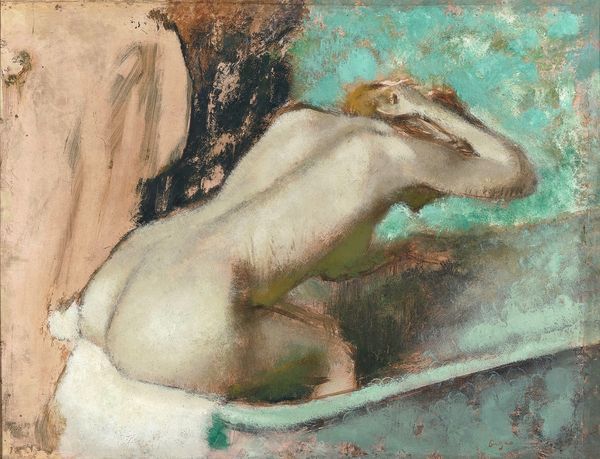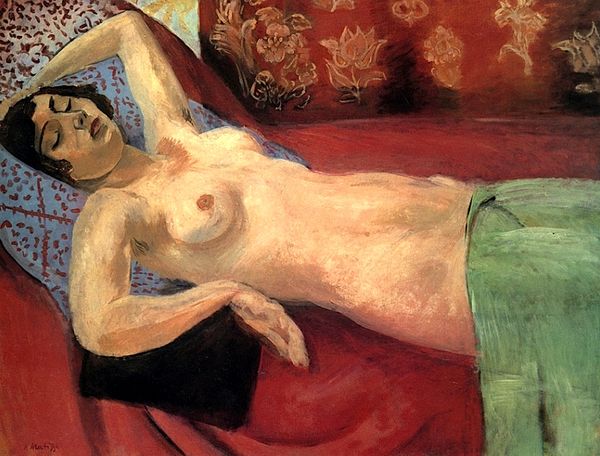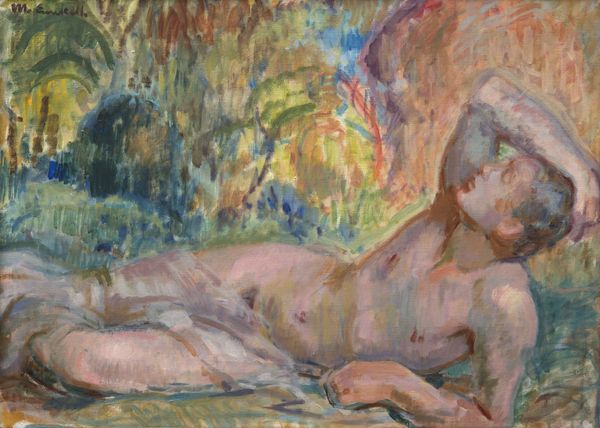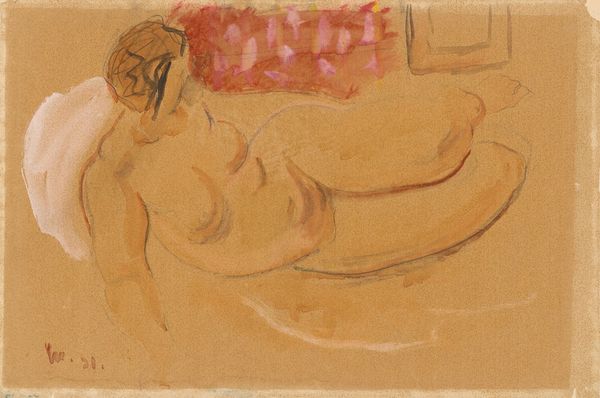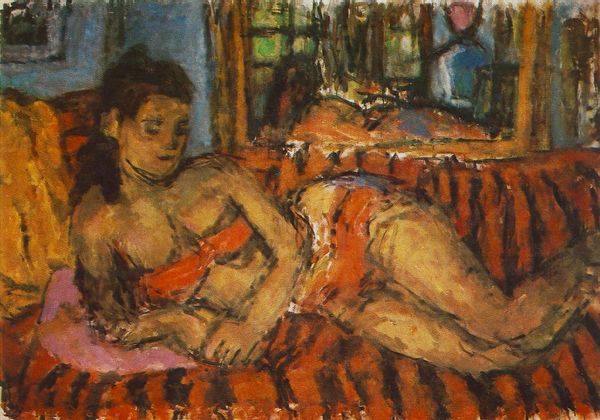
painting, oil-paint
#
portrait
#
figurative
#
painting
#
oil-paint
#
oil painting
#
symbolism
#
post-impressionism
#
nude
#
portrait art
Copyright: Public Domain: Artvee
Paul Gauguin painted "Manaò tupapaú" while in Tahiti, reflecting his search for a paradise untouched by European civilization. But what does it mean to search for paradise on someone else's land? Here, we see a young Tahitian woman lying on a bed, her pose reminiscent of traditional European nudes, yet her dark skin and the presence of a ghostly figure behind her disrupt this familiar image. The painting's title translates to "Spirit of the Dead Watching," evoking a sense of unease and cultural displacement. Gauguin romanticized Tahitian culture, but his work also reveals the complexities of colonialism and its impact on identity and representation. He once said, "I wanted to suggest a certain mystery," and indeed, the painting is filled with ambiguity. Is the woman asleep, dreaming, or haunted? How does Gauguin, as a European artist, negotiate his gaze upon this indigenous woman? "Manaò tupapaú" challenges us to confront the power dynamics inherent in cross-cultural encounters and to consider the emotional and psychological impact of colonialism on both the colonizer and the colonized.
Comments
No comments
Be the first to comment and join the conversation on the ultimate creative platform.
